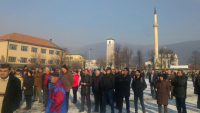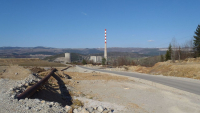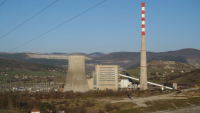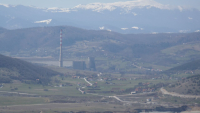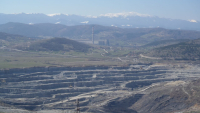Project – On record
This profile is no longer actively maintained, with the information now possibly out of dateBankTrack
Pippa Gallop, CEE Bankwatch Network
Diana Milev Cavor, Green Home Montenegro
Ines Mrdovic, MANS Montenegro
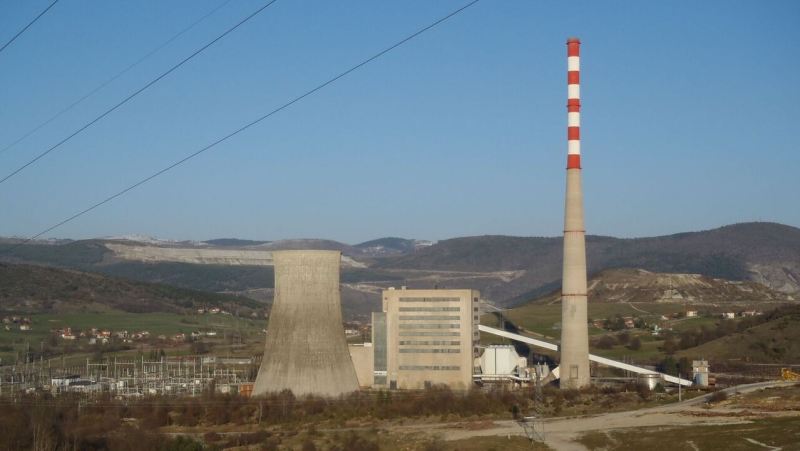
Project – On record
This profile is no longer actively maintained, with the information now possibly out of dateBankTrack
Pippa Gallop, CEE Bankwatch Network
Diana Milev Cavor, Green Home Montenegro
Ines Mrdovic, MANS Montenegro
What must happen
As well as the obvious climate impacts from coal, the plant will perpetuate the damage from the current plant in Pljevlja and its associated facilities. The town suffers from massive air pollution, partly as a result of being situated in a valley with a high number of foggy days. Commercial and public banks should therefore refuse to finance this lignite-fired power plant.
| Sectors | Coal Electric Power Generation |
| Location |
|
| Status |
Planning
Design
Agreement
Construction
Cancelled
Closure
Decommission
|
| Website | http://www.epcg.com/en |
Pljevlja I power station situated in Pljevlja is the only coal-fired power station in Montenegro. It went into service in 1982 and has a generation capacity of 210 MW. It produces about 40 percent of the state's electricity. The lignite is supplied from the nearby Potrlica mine operated by Rudnik uglja ad Pljevlja. Pljevlja II is the intended second unit. Montenegrin electricity company EPCG is seeking new sources of financing for the planned 254 MW second unit at the Pljevlja lignite-fired power plant in northern Montenegro after the Czech Export Bank and export credit agency EGAP in October 2016 decided not to support the project. The project requires an investment of EUR 324.5 million.
Social and human rights impacts
The existing lignite power plant in Pljevlja, together with the captive mine, has already heavily polluted the town with dust and other emissions. The main social impacts are therefore health costs and demographic changes in the town as outward migration has accelerated in the last few years. The new plant is touted as offering job opportunities and lessening pollution due to the installation of district heating instead of individual stoves. Both of these claims are false: a new Bankwatch study has shown that the number of jobs in the mine and power plant will have to be reduced even if the new plant is built, while the power plant only includes a connection point for district heating, not the construction of an actual network, so unless the Pljevlja local authorities invest in a district heating network there will be no change.
The current plant in Pljevlja and its associated infrastructure is violating local people’s right to a healthy environment. It is expected that the new plant would perpetuate this situation to a large extent.
Environmental and climate impacts
As well as the obvious climate impacts from coal, the plant will perpetuate the damage from the current plant in Pljevlja and its associated facilities. The town suffers from massive air pollution, partly as a result of being situated in a valley with a high number of foggy days. Pljevlja also suffers from having a huge mine, ash dump and spoilheap nearby, all of which are responsible for dust pollution during windy weather. Concerning the new plant itself, while it would obviously be less polluting than the current one, the proposed design is not in line with the new best available techniques standards expected to be adopted in the EU during 2017, and the pollution from the plant would be emitted from the cooling tower instead of the current 250 metre-high chimney, meaning that more pollution would stay in the valley.
Other impacts
In July 2016 the Montenegrin government published a study purporting to show that the Pljevlja II plant is economically viable. A Bankwatch analysis, however, showed that many of the assumptions in the study are flawed and appear to have been adjusted in order to make the numbers add up. There is also a red flag concerning possible corruption in the project: The Pljevlja II lignite mine has the nearby power plant as its main customer, and if the current power plant closes without a new one being built, the mine is likely to close. The fact that the Prime Minister’s brother, Aco Djukanovic, is the largest individual shareholder in the mine, raises concerns that the decision to go ahead with the project may be based on special interests rather than being properly assessed as the most economic way to satisfy energy needs.
Another issue that raises questions is the use of a non-standard selection procedure to choose the main contractor. Rather than a standard tender procedure with clear specifications and deadlines, the Montenegrin government invited companies from several countries with which it had bi-lateral agreements to submit offers.
In October 2016 the Czech Export Bank (CEB) decided not to finance the project.
Project sponsor
EPCG
MontenegroOther companies
Skoda Praha a.s.
Czech RepublicProtest against Pljevlja II
2019
2019-09-17 00:00:00 | Montenegro cancels Pljevlja II coal plant project
On September 17, Montenegrin Prime Minister Duško Marković announced that the government is no longer pursuing the planned 254 megawatt expansion of the Pljevlja lignite power plant, making Montenegro the first western Balkan country to officially cancel a new coal project. Read more details here, via CEE Bankwatch Network.
2017
2017-06-14 00:00:00 | Almost none of new coal power plants planned in the Balkans will meet EU pollution standards, according to a new analysis
On 28 April this year, EU officials adopted new technical standards for large combustion plants, the so-called ‘LCP BREF’, which sets out the best available techniques for controlling pollution to air, water and soil, as well as the emission limits that must be achieved by applying these techniques. Bankwatch’s analysis looks at eight coal-fired units totalling 2.6 GW in capacity planned in Bosnia-Herzegovina, Kosovo, Macedonia, Montenegro, and Serbia, plus the Stanari plant in Bosnia-Herzegovina which started commercial operation last September. Compared to the air pollution limits set in the BREF, five of the planned units would certainly not meet the new standards, while insufficient information is available for the remaining three.
2017-05-16 00:00:00 | Environmentalists take planned Montenegrin coal plant to court
Green Home, a Montenegrin environmental non-governmental organisation, on Friday submitted a complaint to the Administrative Court of Montenegro requesting the cancellation of the environmental approval for the controversial Pljevlja II coal power plant the government seeks to build. The approval, issued by the Environmental Protection Agency on 22.2.2017, failed to include several elements stipulated by the Law on Environmental Impact Assessment, such as a justification for the decision, responses to comments provided during the public consultation, and a list of measures to address environmental damage during the construction and operation of the plant (source CEE Bankwatch Network).
2016
2016-10-26 00:00:00 | Czech Export Bank decided not to finance Plevlja coal-fired power plant
The state-owned Czech Export Bank (CEB) has pulled out of a CZK nine billion (EUR 333million) deal to finance the construction of a new unit at the Pljevlja coal-fired power plant in Montenegro by Skoda Praha, a unit of state-controlled giant CEZ, local media claimed on October 26. Unnamed sources told Czech daily Hospodarske noviny that CEB sees the project ordered by Montenegrin power monopoly EPCG as too risky. The newspaper claims to have seen a letter from the state lender to CEZ reporting the refusal to participate (source BNE Intellinews).
2016-09-22 00:00:00 | Montenegro's Pljevlja coal plant is running out of time to secure financing
The Czech daily Hospodarske Noviny (English: "Economic Newspaper") has reported that the Czech Export Bank (CEB) and export insurance agency EGAP may not be be able to finance the Pljevlja II lignite power plant in Montenegro due to new OECD rules entering force on 1 January 2017 (source CEE Bankwatch Network).


